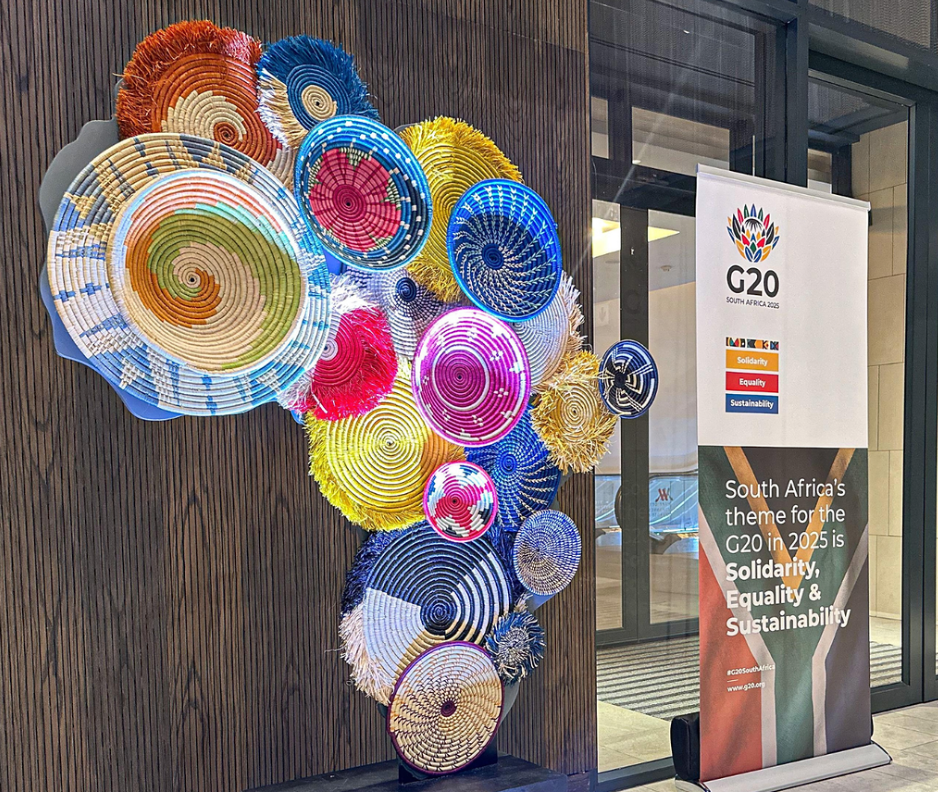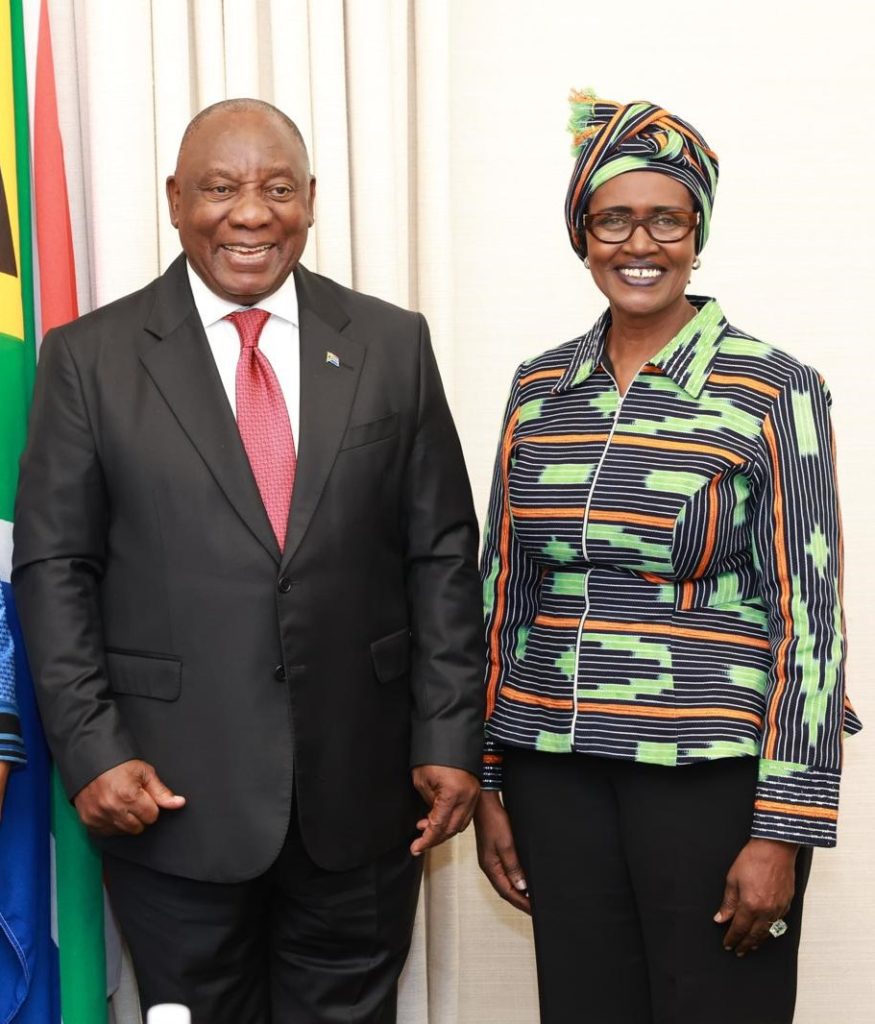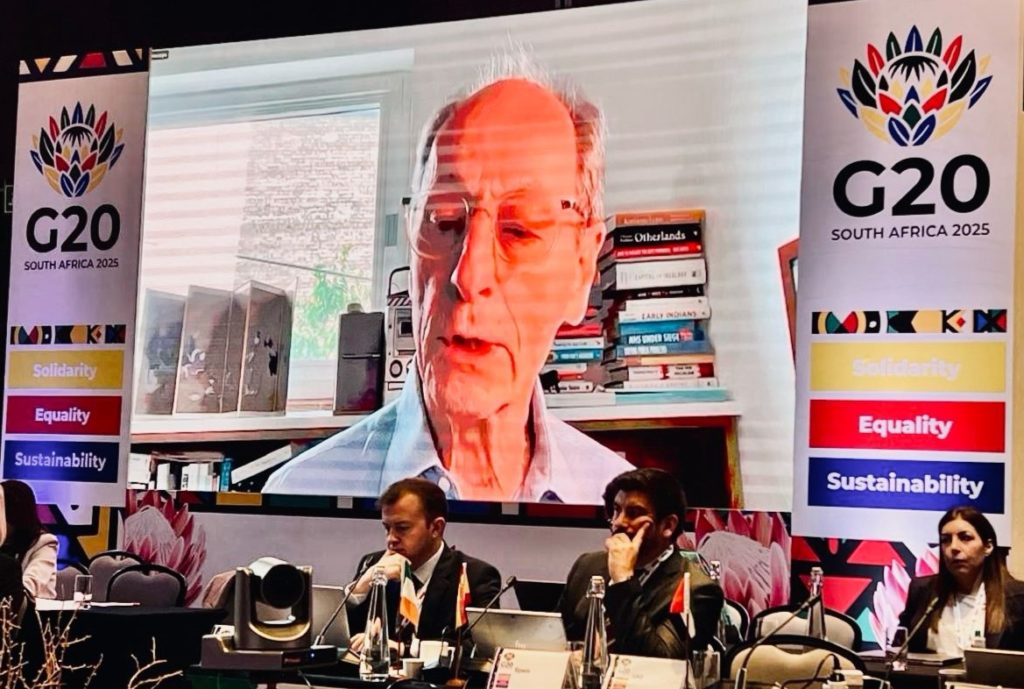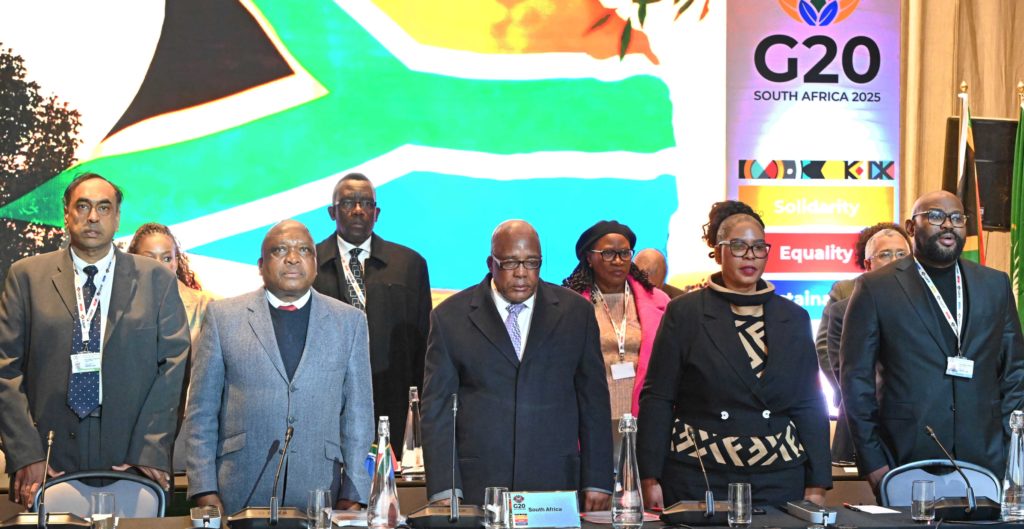G20 action can overcome the inequalities driving pandemics



This year’s G20 provides a vital opportunity to protect global health security through coordinated action to unlock countries’ capability to tackle pandemics, say members of the Global Council on Inequality, AIDS and Pandemics.
Inequality Council Convenor and UNAIDS Executive Director Winnie Byanyima met with South African President Cyril Ramaphosa and Health Minister Dr Aaron Motsoaledi on 11 and 12 June 2024, and reaffirmed the support of UNAIDS and the Council during South Africa’s 2025 presidency of the G20. She noted that action by the G20 could enable local production of medicines and vaccines on every continent and tackle the resource constraints on health faced by low- and middle-income countries through debt reduction and tax cooperation.
Recent sharp reductions in international aid brings even greater importance and urgency to the G20 agenda. As Ms Byanima told reporters: “This is not an easy time. Widening inequalities are the cause of many of the problems we have. Countries that are highly indebted are paying more to service their debt than they can put in the health of their people. Multilateralism is critical. I congratulated President Ramaphosa for his leadership of the G20 and offered our support, particularly on the question of resolving the debt issue.”
Watch Winnie Byanyima’s interview with SABC News
Ms Byanyima’s visit coincided with a meeting in Johannesburg of the G20 Health Working Group, whose deliberations were informed by contributions from Council members, including Michael Marmot, Matthew Kavanagh and John Ataguba. Council members shared with G20 leaders how effective preparedness and response to pandemics depends on addressing the social determinants of health, on enabling rapid and equitable access to medicines, and on expanding fiscal space.
Inequality Council Co-Chair, Sir Michael Marmot, Professor of Epidemiology and Director of the Institute of Health Equity at University College London, addressed G20 leaders on how health outcomes, both for pandemics and for other challenges like non-communicable diseases, are driven by social determinants. He shared the transformative impact that policies to tackle inequality have on health, highlighting the vital role of social protection measures.
Watch this set of reflections by Michael Marmot on the importance of tackling inequalities
During the peaks of both the COVID-19 and AIDS pandemics, critically needed vaccines and medicines were slow to reach low- and middle-incomes, causing millions of additional infections and deaths.
Dr Matthew Kavanagh, Director of the Georgetown-UNAIDS Collaborating Centre on HIV Policy and Inequality, addressed G20 leaders on how unequal access to medicines prolongs health crises, and how G20 support for local and regional production of new technologies could transform the world’s capacity to overcome both current and future pandemics. As he noted, “It’s not pie in the sky. There are some really practical, actionable steps that the G20 could take together to do that.”
Watch Matthew Kavanagh on what the G20 can do
Professor John Ataguba, Executive Director of the African Health Economics and Policy Association, highlighted that effective public health starts with reaching the last person, that the health of people in the Global North and Global South depends on international collaboration, and that delivering on the agenda for the G20 set out by South Africa would help protect people everywhere.
Watch John Ataguba on why this G20 is such a critical opportunity
G20 Health Working Group delegates affirmed the vital importance of these issues.
“We have seen breakthroughs in health research in recent years. The main challenge now is to make these innovations equally accessible to all communities. Strengthening local and regional capacities is the only way to ensure true preparedness for all,” said Brazil’s João Domingos Bimbato.
“We must leverage lessons learnt from the HIV response, lessons of solidarity, equality and sustainability,” said Africa CDC’s Dr Wande Alimi.
